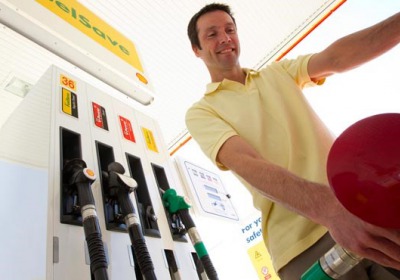Shell says petrol cars to die out by 2070
Mon, 20 Jan 2014The end of the petrol-engined car is nigh, or so says Shell, in its latest New Lens Scenarios report. But don’t worry, there’s no need to panic just yet. The oil giant is predicting the end won’t come until 2070.
You may think that Shell would be an unlikely source for such a prediction, but in truth, nobody really knows when the last petrol-powered car will be sold.
Scotland to ban petrol and diesel cars by 2050?
Petrol or diesel – which fuel should you use?
Shell argues that the world in the future will be defined by how people and governments meet the challenges posed by institutions, inequality, and insecurity in relation to the paradoxes of prosperity, leadership and connectivity.
It sets out two different ‘panoramas’, each with distinctive social, economic and political features that can be discerned over the next couple decades.
Firstly, Mountains, where the governments work to create stability, but at the same time constraining the economic potential of some sectors of society. Tight/shale gas and Coal Bed Methane (CBM) enjoy great success, forming a new ‘gas backbone’, whilst there’s a slow down in growth for liquid fuels.
A moderation in greenhouse gas emissions would lead to a cleaner energy system, but the global average temperature rise would still overshoot the current 2 degrees Celsius goal.
In the second ‘panorama’, Oceans, the trajectory is driven by a growing global population with increasing economic empowerment. Liquid fuels and coal continue to play a leading role in the energy mix, until solar overtakes in the latter part of the century.
Natural gas grows, but greenhouse gas emissions peak and remain high for a prolonged period of time, before being reduced by a combination of biomass, CCS and solar.
Two very different scenarios and both very much based on multiple variables and external factors. But there’s no disguising the fact that one day, the oil will dry up.
And with the global population set to hit 9 billion by the year 2050, a future of transportation based on solar, hydrogen and electricity is very much on the cards.
Which means smiling as you fill up with unleaded will be a thing of the past. Still, we do have a few years to get things sorted.
According to the report:
“By 2070, the passenger road market could be nearly oil-free and towards and the end of the century an extensive hydrogen infrastructure rollout displaces oil demand for long haul and heavy loads.
“By this time, electricity and hydrogen may dominate, and affordable, plug-in hybrid hydrogen vehicles may offer the ultimate in flexibility and efficiency.”
And in the report’s foreword, CEO of Royal Dutch Shell plc, Peter Voser:
“By 2030 we expect demand for critical resources like water, energy and food to have risen by 40%-50%. To meet those needs without significant environmental detriment, business as usual will not be an option – we require business unusual.”
On Bing: see pictures of cars in petrol-engined cars
Find out how much a used petrol-engined car costs on Auto Trader
Most economical petrol cars
Scotland to ban petrol and diesel cars by 2050?
Petrol or diesel – which fuel should you use?
By motoringresearch.com

